Spotlight on Mark Murrmann
Aug 30, 2013
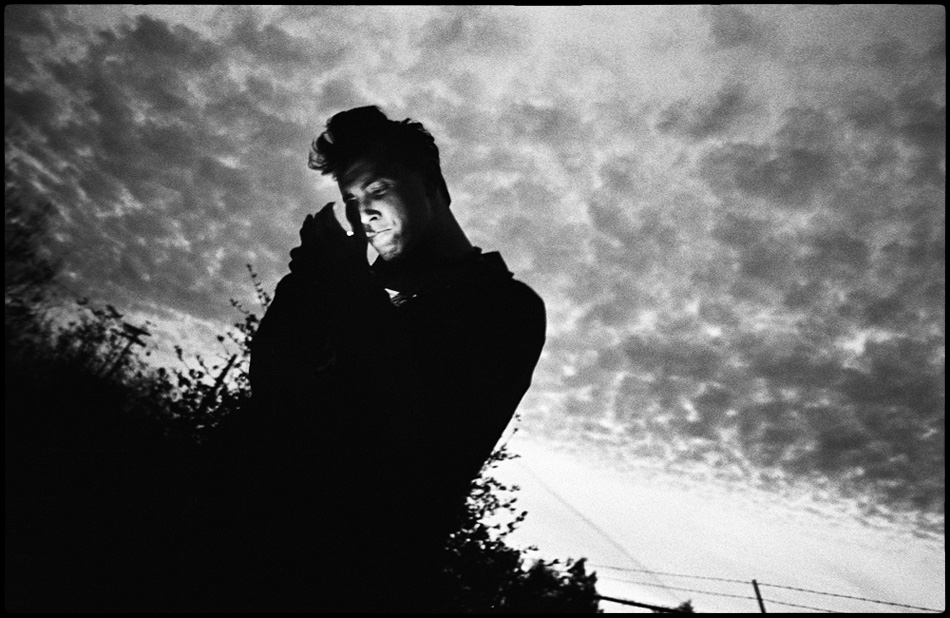
TID: Please tell us about the image's context and background.
Mark: I took this photo in December 2003, during my second year of grad school, while studying photojournalism at Berkeley. We had a semester-long assignment to do a photo project on wine country -- Napa Valley, Sonoma, etc. A lot of people naturally gravitated towards covering the migrant workers. I was looking for something different. Initially, I looked at the tourist side of the region and then tried to do something on the high society side of Napa. I had a hard time with it. I didn't fit in. I'm not a super charismatic person who can work my way into situations. I couldn't figure out a story.
There happened to be a record store in Petaluma, California that was on the edge of what was then considered wine country. I'd go there while driving around looking, thinking, shooting. The guy who ran it mentioned something about homeless kids who hung out in Petaluma, mostly at this old movie theater that had punk shows and acted as something of a supervised hangout spot. Those were people I could relate to a bit more. And it struck me that lots of people did projects on homeless teens in big cities (Raised By Wolves, Streetwise, etc.) but here were street kids in small towns, semi-rural/suburban areas, right in wine country. That was my project. I had about three weeks left in the class to get it shot, edited and presented.
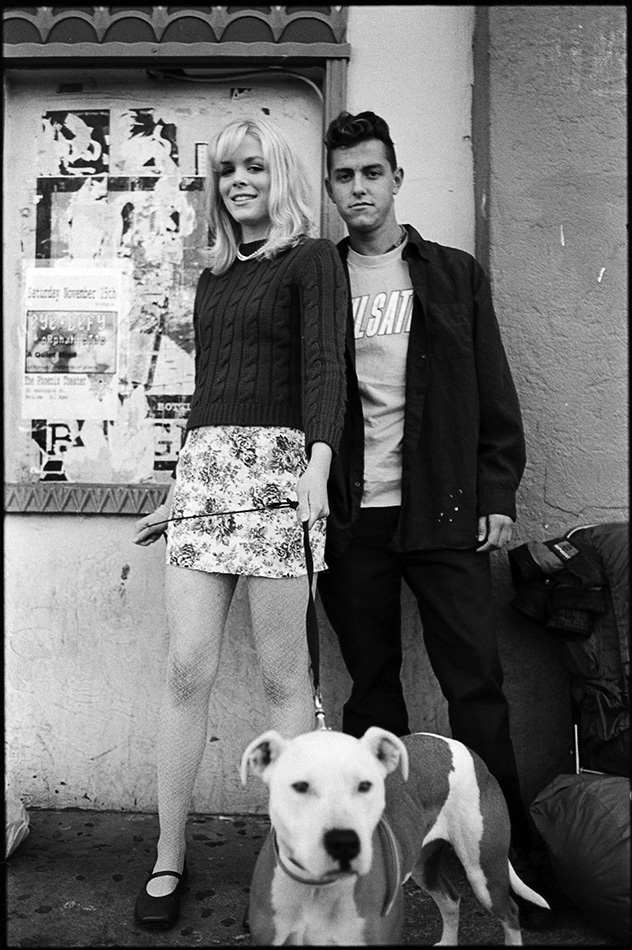
Most of the "homeless" kids turned out just to be punks, skaters, miscreants who lived in Petaluma or Santa Rosa and hung out at the theater. But this one guy, Tyson, was down there, living on the streets, crashing with his girlfriend when he could. He was nice, pretty open and a good subject for the story. I gravitated towards him. The real story was less about the theater and more about Tyson and the people he hung out with, what he did, where he slept, where he was from. I wanted to know: Why was he living in Petaluma and not San Francisco? One day I was hanging out with him and his friend at a place they called the Pipe Bridge. It was the first time we hung out outside of the theater. They were drinking beer, when Tyson grabbed a cigarette and tried to light it a few times without any luck. I grabbed my camera, took one shot of him lighting his cigarette. I was lucky and got the shot. I was shooting with a Leica, which I was still really learning my way around.
After the Pipe Bridge, they took me to an abandoned building where they were squatting. Tyson and I made plans to go up to Redding - where he was from - for Christmas. Then he was going to hop trains to Florida. He said I could go with him. I was excited. The story was really taking shape. However, when I went to Petaluma to meet Tyson to go to Redding, he never showed up. He was gone. No one knew where he was. I didn't have a phone number for him. I went back to Petaluma a few times, but he was just gone. The story fell out from under me. It was a total bummer.
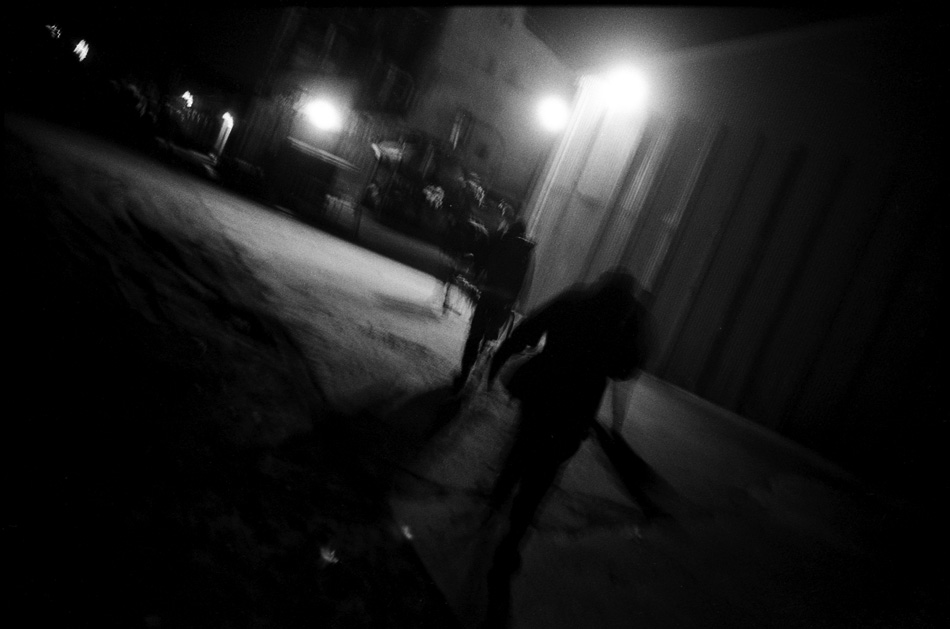
I still feel like I dropped the story. I'm not sure if Tyson bolted because he changed his mind, if he got arrested or what happened. I should have been more diligent about following up, trying to find him. But I was graduating. I had another project to finish for my master's thesis. I was moving. Shit got in the way.
TID: Can you describe what was going on in your mind as the image took shape, and then also what you were thinking when you made the image?
Mark: Mostly I was looking for photos and trying to… not fit in necessarily, but not be intrusive. I was self-conscious about being there with a camera. I was seeing photos everywhere, but since it was the first time they let me hang out with them outside of the theater, since they gave me the okay to shoot them, I didn't want to be obnoxious with shooting. I mostly just wanted to be hanging out, have them get used to me being there. But when this photo happened, it was quick. I thought it'd be an okay shot, but it wasn't until seeing the contact sheet that I got excited about it.
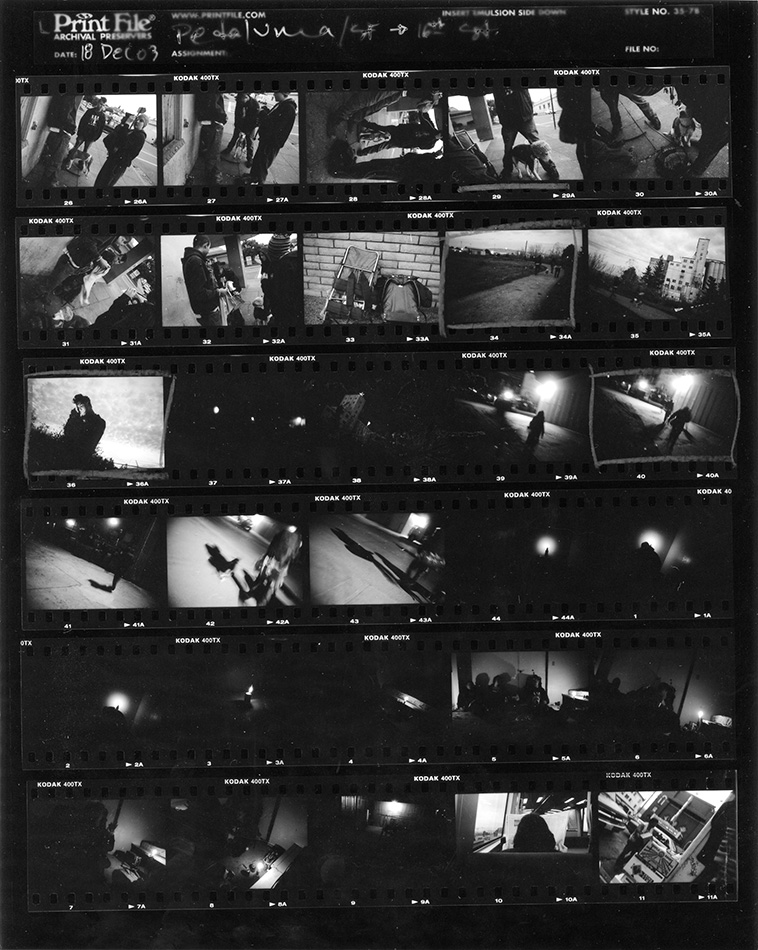
TID: What were some problems or challenges you encountered during the coverage of this event, and how did you handle them?
Mark: Right when the story started really taking shape, it fell apart. Tyson was a good subject for this story. But I screwed up in not getting a phone number for him and not having any kind of back-up, just focusing on him. It was really early in the process of working on the story. And after Tyson disappeared I got a bit discouraged and decided to focus on my other project, about prison tourism.
TID: Was there anything that you learned or put to use in later assignments that come about from this experience?
Mark: There's a lot about working on this story that I learned from, or that just lingers. One thing I learned is that I have a really hard time coming up with story ideas. I'm bad at it. I'm either too grand or too granular. I miss stuff right in front of me. That is still true. It took me months of shooting crap I didn't care about before landing on this story. And I was missing the real part of the story at first. By the time I found the story, it was gone.
Something else that came out of this shot – I submitted this project, as anemic and unfinished as it was, to the Alexia Foundation for their annual contest. I placed second in the student category and wound up going to London to study for a semester as a result. That experience was amazing, on so many levels. I had a really great teacher (Doc Mason), I shot a ton of bands while in London, got a handful of assignments for The Guardian, had a great time all around and then wound up going to Kiev to cover the Orange Revolution. That proved to be another big lesson -- but that's another story.
I am very appreciative of getting to go to London with the help of the Alexia Foundation, but feel like I placed 2nd mostly on the strength of this one photo and maybe on the possibility of what the project could have been. Maybe not. But I feel like the work could have and should have been better overall, more complete. But then again, I feel that way with anything I work on.
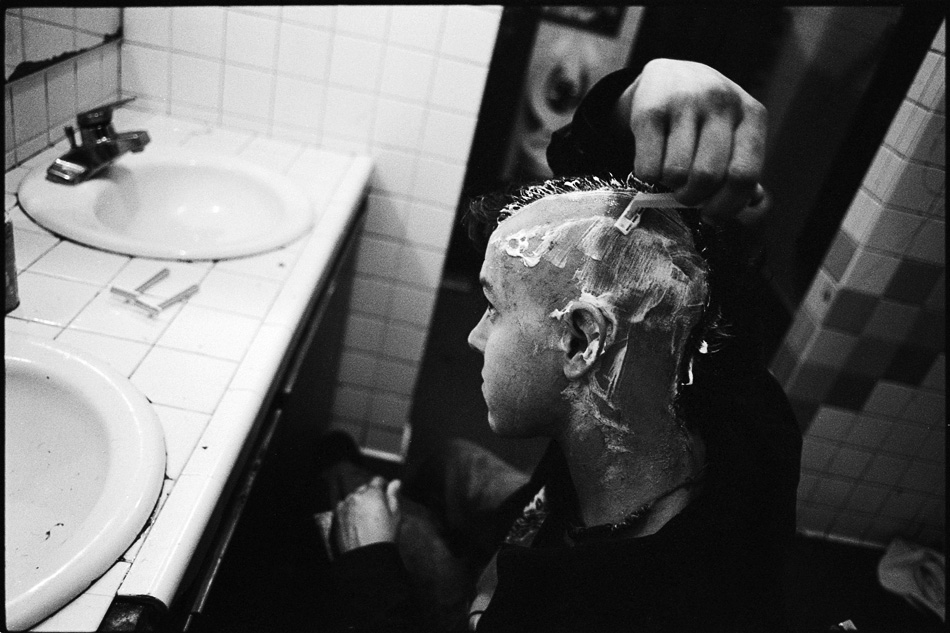
TID: You mentioned shooting with a Leica -- one of the first showcases of your work I ever saw was on Leica's site. How much do you feel the tools you use influence your shooting? Do you still prefer film and why (or why not)?
Mark: Tools influence my shooting quite a bit. It's hard to describe exactly how, but I definitely shoot differently when I'm using my Nikon than when I'm shooting with my Leica. When I have both with me, I lean much more on my Nikon. However, especially when I'm shooting street stuff, I'm far more comfortable with my Leica. And when I'm shooting with a little Minox 35 it's totally different than when I'm using my Fuji X10, even though both are point-and-shoot cameras. And my XPan puts me in a totally different mode of looking, shooting. Each camera works different, feels different and gives you a different kind of image. I've also noticed that I shoot a bit differently when I'm using film than with digital. I'm more judicious in my shooting: Take one shot, move on, rather than knocking out a handful of frames like I do with digital.
I don't know that I prefer film... okay, I do. I love film. But using film has become more complicated because the world has moved on. Even though I develop my own black and white film, it is a slower, somewhat more complicated process to deal with. And it is getting more expensive. My workflow is different for film and digital; sometimes those workflows clash with each other. I'll get digital shots processed and toned and put up for a client or friends to see, and it can be months before I get to the film. But I do prefer film: I like the latitude I get shooting with Tri-X. I like the look and feel of it. Nothing looks as good as well-developed chromes. I like digital fine. It's nice sometimes to have the instant feedback. But for me, film fits well with my overall analog preference in life: vinyl over CDs or Mp3s, print magazines and newspapers over digital versions, postcards over text messages.
All that said, I wonder how much my shooting process would change if I had a digital Leica?
TID: If we are spotlighting a photographer and they get stumped in telling us about their thought process, sometimes we ask them to pretend they are talking to a younger version of themselves, someone who could recognize good images, but just didn't know how the photographer got themselves in a position to make the frame.
Along those lines, it sounds like you have some regrets in how you handled the situation 10 years ago -- do you have any advice you would give yourself if you could hop in a time machine and zip back?
Mark: First piece of advice, not necessarily related to that particular story: shoot more portraits, get comfortable with it and develop a portrait style that is your own. Most assignments you'll get will be portraits, especially as you start out. Get it down.
Otherwise, the advice would be things I knew then, but just had a hard time with in general: shoot everyday. Get your ass out the door. Don't spend so much time reading about and researching a story: get out and talk to people. That's where the story is -- always. I still think too much about a story, I'm bad with coming up with story ideas and I'm not super comfortable with people. It shows in my pictures I think. It's part of what gives my photos whatever particular look they have though – a sort of distance, the gaze of an observer.
I'd also tell myself that you're making better pictures that you realize. Have more confidence in your images. You only really need a few great images out of a shoot for it to be successful.
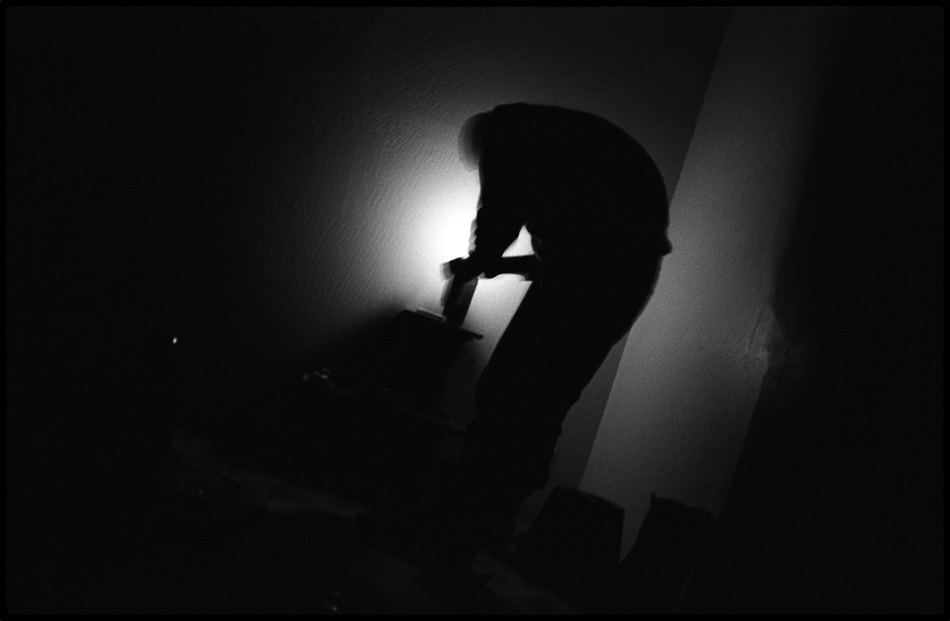
TID: I like the fact you brought up Alexia, especially along with the fact you are a photo editor, as well as shooter. Do you have any advice or thoughts on photographers utilizing resources like Alexia, or advice on contacting, reaching out to or being useful to editors?
Oftentimes it seems like successful photographers don't just make good frames, they know how to get them published or use them in a way to forward their careers or resources. Do you have thoughts on that?
Mark: Oh man. Good question. First, applying to the Alexia Foundation Grant was such a good thing for me. I placed second, but still, it opened a lot of doors, led to some amazing experiences. But you know, being a successful photographer is not the same thing as being a great photographer. There are a lot of great photographers who aren't nearly as well known as people who know how to network or are just really charismatic or are great at marketing themselves or just who know the right people. We all know this, right? It's really like 80% who you know, like with any profession. Cynical, but true.
A less cynical way to look at it is that entering (and more, winning) contests and grants no doubt helps raise your profile as a photographer. Money from grants, exposure of your work to a larger audience: every little bit helps. But you shouldn't be shooting for contests.
I guess it's hard to answer this question because it depends on what you as a photographer consider a successful career. Is it paying your bills, putting a roof over your head and feeding your family? Is it seeing the world? Is it making a difference? Is it getting published in a specific publication? Is it making as much money as possible? Is it getting into Magnum? Is it fulfilling a creative drive? Meeting and shooting celebrities? Documenting or being a witness to history? If you can figure out what you consider to be a successful career as a photographer, it makes figuring out a path a lot to get there a helluva a lot easier. Not every photographer can answer that. I don't know that I can.
In general though, yes, making good pictures is one small part of the equation. Knowing how to get the work seen – and getting paid for it – is much harder. You have to reach out to editors and art buyers and curators. I feel like coming up with a targeted set of people/publications is worthwhile. Focus and make it a bit more personal when you contact them. Keep in touch with those people, especially if they bothered to write you back or if you met with them and it went even just pretty well.
And then - this is huge - when you get an assignment, it goes a long way if you're easy to work with. You don't have to kiss ass or bend over backwards or do something you don't feel comfortable with, but get the assignment done, put effort into it, do what is asked of you (if not more.) And be honest. This is all basic stuff. If you come back with good pictures and aren't a pain-in-the-ass to deal with, you will get more work. And the editor is likely to recommend you to other editors. That's one step of your career taking off.
Some people really have this figured out. They know how to get their work seen, and move up the food chain. But most of the rest are just trying to pay the bills doing something they enjoy doing. It's fucking hard. Being a good, successful photographer any more is so much – too much – about marketing yourself. I hate it. As an editor I understand it, it makes sense. As a pretty modest photographer, I hate it.
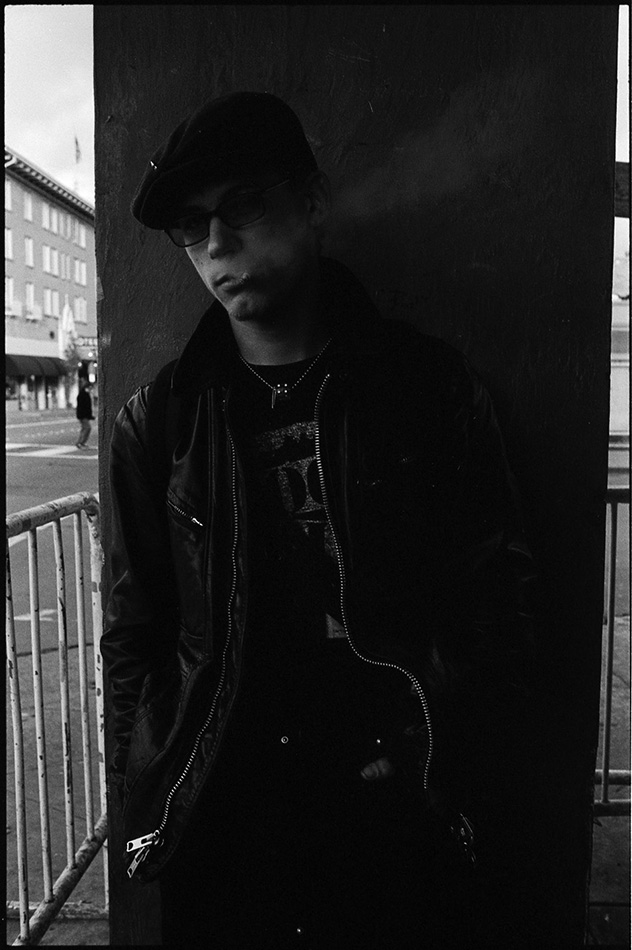
TID: I feel like there is an intimacy to your work - it seems that the people you photograph feel very comfortable in your presence. How do you think you accomplish this?
Mark: Ha. This is funny, given how I don't really feel all that comfortable around people. I guess I just get really self-conscious. If there's an intimacy in my photos it's because I try to be as discreet as possible, which sometimes backfires. I feel like every time I raise my camera it changes what people are doing, or they look at me and it ruins the shot. I essentially try to take the fly-on-the-wall approach to shooting. In shooting street photography, or music, or anything: I try to make the viewer feel like they are RIGHT THERE, walking down the street, at the front of the stage, wherever I am taking pictures. I like to have a looseness in my photos, which helps give my photos an intimate feeling. It's like catching a glimpse of something, catching that fraction of a second that makes it interesting only because you captured it, because you took a picture of it.
Especially with my early photos I think they're just failed attempts at trying to shoot like photographers who I admired (and still admire). That becomes your style. It is similar to how bands often try to sound like other bands and fail, but in the process create their own sound. It's the same with photography. For me, I was trying to shoot like Antonin Kratochvil and Eugene Richards and Jean Gaumy and Ilkka Uiomnen and Paolo Pellegrin and Garry Winogrand and Gilles Peress and Larry Towell without really knowing their process, as well as not having their skill, training, background and everything that makes them the photographers they are. So the intimacy (or lack thereof) comes from trying to shoot loose, sometimes trying too hard, or trying to get close, yet being somewhat shy. Just from absorbing influences of these photographers I was soaking up when I was getting started. Also, I have to mention that having Susan Meiselas look at my contact sheets and talk to me about how I was shooting, what I was shooting – and what I wasn't – was hugely influential.

++++++++++++++++++++++++++++++++++++++
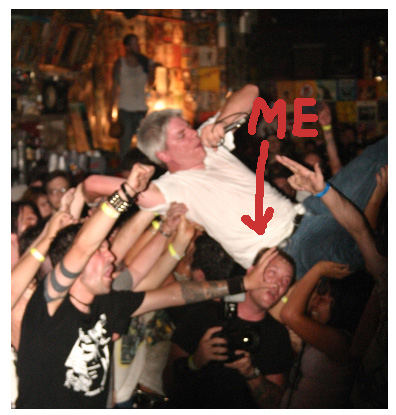
Mark Murrmann is the Photo Editor for Mother Jones magazine and a contract photographer with ZUMA Press. His work has appeared in a number of magazines and newspapers as well as on dozens of record covers. His commercial clients include Levi's and Jim Beam. He is a longtime contributor to Hamburger Eyes photo magazine, who published his most recent photozines: Mess Me Up!, (Sweat) Stains, and Benign Neglect. Once upon a time he published Sty Zine and ACTION! Photozine, hosted a late night radio show in Bloomington, Indiana, wrote a weekly column for the Indianapolis Star, ran a record label and was editor of Maximum Rocknroll magazine. He is a graduate of Indiana University and UC Berkeley's Graduate School of Journalism. He's won a smattering of awards for his photography and photo editing, usually just barely placing; he is nonetheless grateful for the recognition. These days he has been focusing on street photography, shooting music and editing a new photozine.
website: http://www.MarkMurrmann.com
tubmlr: http://icki.tumblr.com/
flickr: http://www.flickr.com/photos/icki/
Hamburger Eyes: http://www.hamburgereyes.com/
Aformentioned Leica interview: http://blog.leica-camera.com/photographers/interviews/mark-murrmann-just-a-performance/